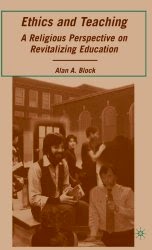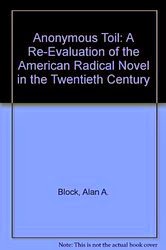
In his essay “Natural History of Intellect,” Ralph Waldo
Emerson argues for the priority of the truth-seeking of the individual over the
truth-known of the prophet. Emerson says that the trained mind
-that which has undertaken
a course on philosophy, (and I recognize the idealist dismissal of the body
here)
-”will need no priest. And
if he finds at first with some alarm how impossible it is to accept many things
which the hot or the mild sectarian may insist on his believing, he will be
armed by his insight and brave to meet all inconvenience and all resistance it
may cost him.” Arguing for the primacy of the power of the individual
-on self-reliance
and on thought
-Emerson disparages the
self-aggrandizement and obfuscations that derive from the rhetorics of so-called
scholars. He asks, “ . . . was there ever a prophet burdened with a message to
the people who did not cloud our gratitude by a strange confounding in his own
mind of private folly with his public wisdom.” By which I
think Emerson wonders whether within the prophets words doesn’t
there always lie some confusion between an idiosyncratic moment with a public
movement. That is, doesn’t the philosopher/prophet in order to justify his own position
turn the exception into
his rule; or
doesn’t the prophet confuse his own private thought with that which the public
must accept as knowledge.
Now, Emerson doesn’t contrast “this
besetting sin of sedentary men” to the wisdom of a public. Indeed, though in
the public sphere the “overweening self-conceit” is suppressed, in that former
arena only the popular is acceptable “for the entertainment of all . . . Great
is the dazzle but the gain is small.” As in all of the comment and analysis on
the news channels, and despite the thousands of words in critical commentary in
the newspapers and journals, “ . . . here they play the game of conversation,
as they play billiards, for pastime and credit.”
How well he seems to define the
current practices of discourse in the United States.
I am led to Sanhedrin 89a and the Rabbis’ discussion of I Kings: 2-38. Ahab, the King of Israel, has asked the prophets to
foretell whether he should go into battle and be triumphant, and in response four
hundred prophets answer in the affirmative. Except for Michaiah, whom Ahab
detests “because he never prophesies anything good for me, but only
misfortune.” True to form, Michaiah does foretell defeat and Zedekiah, one of
the majority prophets, slaps Michaiah and scolds him for assuming authority as
true prophet despite the words of the other four hundred! And Ahab sends
Michaiah to prison. Alas, Michaiah was correct and Ahab is killed in battle.
Now the Rabbis wonder: how can
anyone fault Zedekiah when he had himself been deceived by the spirit of Naboth
whom Ahab had had executed so that he might acquire his coveted vineyard. And
Rabbi Johanan says that Zedekiah “should have scrutinized (the forecasts of the
assembled prophets), even as R. Isaac said, “The same communication is revealed
to many prophets, yet no two prophets prophecy in the identical phraseology.”
It is argued that Zedekiah should have been suspicious that every prophet used
exactly the same words, but a Rabbi suggests that maybe Zedekiah didn’t know of
this criterion regarding difference. Alas, King Jehosophat (the very same one
who jumps) seemed to be so aware: the Rabbis attribute to him this warning, “I
have a tradition from my grandfather’s house that the same communication is
revealed to many prophets, but no two prophesy in the identical phraseology.”
Thus it must be that truth is never
contained in the words, and therefore, we must keep talking and never to assume
ownership of truth. No two prophets prophesy in the same words! Emerson, too,
warns against false prophets. “Yes, it is a great vice in all countries, the
sacrifice of scholars to be courtiers and diners-out, to talk for the amusement
of those who wish to be amused, though the stars of heaven must be plucked down
and packed into rockets to this end!” And hence proceeds the
anti-intellectualism in American society in the denigration of study. It is not
action alone but action informed that concerns. “Yet, what we really want,”
declares Emerson, “is not a haste to act, but a certain piety toward the source
of action and knowledge.” Study as prayer.
 In his essay “Natural History of Intellect,” Ralph Waldo
Emerson argues for the priority of the truth-seeking of the individual over the
truth-known of the prophet. Emerson says that the trained mind-that which has undertaken
a course on philosophy, (and I recognize the idealist dismissal of the body
here)-”will need no priest. And
if he finds at first with some alarm how impossible it is to accept many things
which the hot or the mild sectarian may insist on his believing, he will be
armed by his insight and brave to meet all inconvenience and all resistance it
may cost him.” Arguing for the primacy of the power of the individual-on self-reliance and on thought-Emerson disparages the
self-aggrandizement and obfuscations that derive from the rhetorics of so-called
scholars. He asks, “ . . . was there ever a prophet burdened with a message to
the people who did not cloud our gratitude by a strange confounding in his own
mind of private folly with his public wisdom.” By which I think Emerson wonders whether within the prophets words doesn’t
there always lie some confusion between an idiosyncratic moment with a public
movement. That is, doesn’t the philosopher/prophet in order to justify his own position
turn the exception into his rule; or
doesn’t the prophet confuse his own private thought with that which the public
must accept as knowledge.
In his essay “Natural History of Intellect,” Ralph Waldo
Emerson argues for the priority of the truth-seeking of the individual over the
truth-known of the prophet. Emerson says that the trained mind-that which has undertaken
a course on philosophy, (and I recognize the idealist dismissal of the body
here)-”will need no priest. And
if he finds at first with some alarm how impossible it is to accept many things
which the hot or the mild sectarian may insist on his believing, he will be
armed by his insight and brave to meet all inconvenience and all resistance it
may cost him.” Arguing for the primacy of the power of the individual-on self-reliance and on thought-Emerson disparages the
self-aggrandizement and obfuscations that derive from the rhetorics of so-called
scholars. He asks, “ . . . was there ever a prophet burdened with a message to
the people who did not cloud our gratitude by a strange confounding in his own
mind of private folly with his public wisdom.” By which I think Emerson wonders whether within the prophets words doesn’t
there always lie some confusion between an idiosyncratic moment with a public
movement. That is, doesn’t the philosopher/prophet in order to justify his own position
turn the exception into his rule; or
doesn’t the prophet confuse his own private thought with that which the public
must accept as knowledge.











